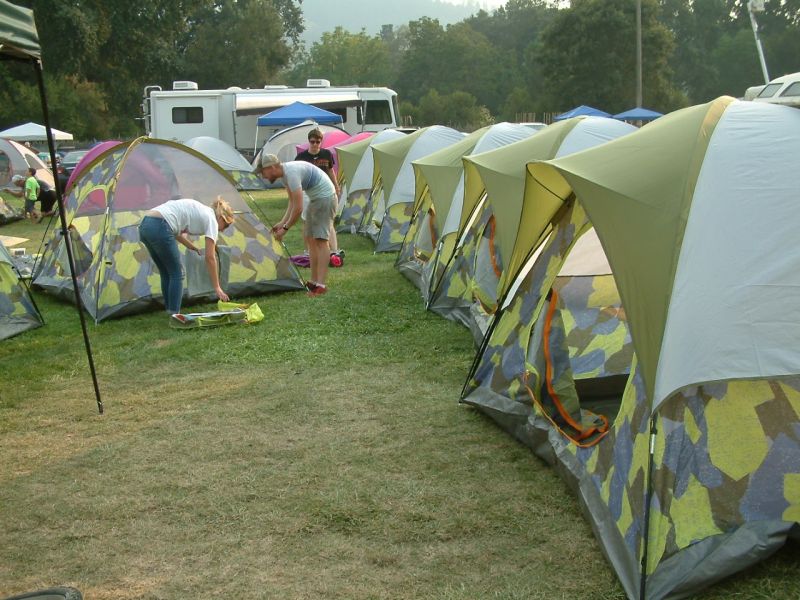"We literally had a four-minute warning to get out," Rubio says. "We had no time to grab [anything]. We left with the clothes on our backs."
Then, on Sunday night, they were watching the news on TV and saw the remnants of their own home on the screen.
"It was a video, so we were able to watch it and see that there’s nothing left," Rubio said. "At all. Anywhere on the property."
Rubio says knowing the house is gone is better than constantly wondering what happened to it.
"I just kind of felt a sense of peace once I knew, and I had an answer," she says. "Well, it is what it is. We’re going to deal with it and move on."
For a lot of other people here, the anxiety of not knowing is getting to them. Dr. Colleen Townsend, a family practice doctor in Napa, is helping to staff the makeshift medical center inside one of the buildings on the fairgrounds. She says anxiety is one of the main complaints. And that is making other health conditions worse.
"So many folks in this area are really affected by chronic illness," Townsend says, especially diabetes and high blood pressure. Because people were evacuated so quickly, many didn't have time to grab medications.
"Certainly in these settings, their blood sugar and blood pressure are already rising just from the stress of the occasion," Townsend said. "Without adequate supplies of their medicines, that can cause acute symptoms like feeling shaky, nausea, sometimes dehydration."
Raul Arroyo lies on a cot recovering from smoke inhalation and a high blood pressure scare. He’s on six different drugs, but he hasn't taken any of them in three days.
There was "no time to get anything," he says. "No medication, no nothing."
He lives in an apartment complex in Middletown. Many of his neighbors are disabled, and he tried to help them get out as the fire rushed into town.
From his cot, he tries to describe how he's feeling. "Stress, helping people, because I thought I wasn’t good enough, and see the thing coming, stressful, really bad," he says. " ’Cause you don’t know what to do, you know? That’s worry, you know, lots of worry."
Mental health staff say most people here are still in shock. But as the days go by, they are expecting to see more people with signs of post-traumatic stress disorder and depression.
